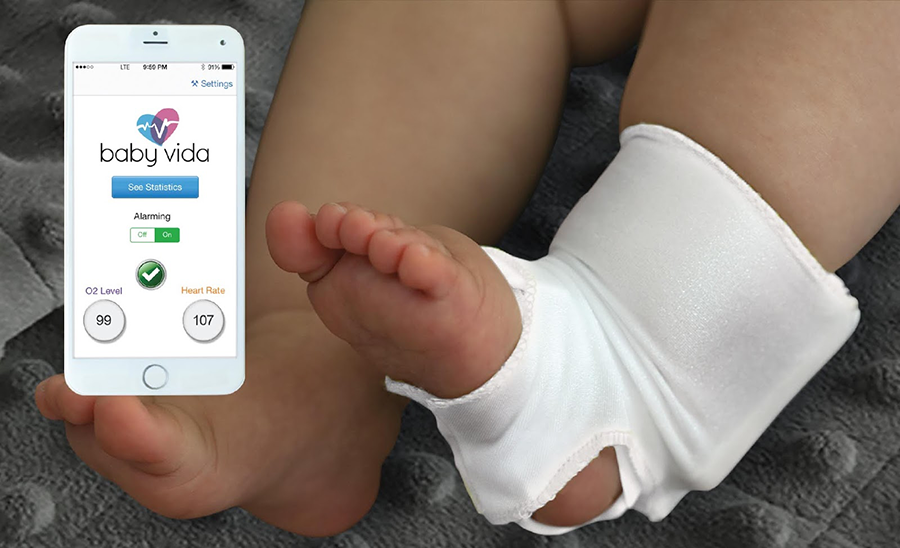According to a recent study in JAMA, two popular commercially available baby monitors that promise to keep parents informed about their babies’ vital signs scored poorly compared with actual hospital quality monitors in a test.
Related Baby Sock Monitor Firm Owlet Raises $24 Million in Series B Funding
The study looked at two wearable baby monitors, the Owlet Smart Sock 2 and the Baby Vida. These commercially available monitors, which are not approved by the FDA, are worn on the baby’s leg and monitors their heart rate and blood oxygen levels. They promise to sound an alarm via parents’ smartphones if the baby’s heart rate or blood oxygen levels move into danger zones, according to Reuters.
Of the two monitors, the Owlet Smart Sock 2 performed better. But it still often sounded the alarm when there was nothing wrong and sometimes missed instances when blood oxygen levels were too low. The other monitor, the Baby Vida, performed even worse, completely missing unhealthy vital signs.
“There are lots of reasons parents should probably not be using consumer vital sign monitors,” said study leader Dr. Chris Bonafide of the Children’s Hospital of Philadelphia. “There is no evidence that these monitors prevent SIDS (sudden infant death syndrome). And the issues with accuracy . . . make me concerned that they could not just be unhelpful but that they could also create problems.”
In the study, the Owlet missed nine occasions in which the baby’s blood oxygen level was “alarmingly low.” It also falsely claimed something was wrong 26 times, though it did accurately catch low oxygen saturation 71 times.
The Baby Vida missed 102 times that the blood oxygen level was too low. While it didn’t sound any false alarms, it did display low pulse rates when they were normal.
Owlet co-founder and CEO Kurt Workman, noted in a statement emailed to Reuters Health that the most accurate method of assessing oxygen saturation involves testing blood that’s been drawn from an artery. “Owlet is designed for in-home use, with healthy babies while they sleep, to provide parents with information about their child’s well-being,” he said.
Related Health Tech Startup Neopenda Unveils Wearable Vital Signs Monitor For Newborns
“Owlet sensor accuracy has been validated in studies performed by independent laboratories and when compared to arterial blood gas measurements the sensor performed well within international standards for pulse oximetry,” he added. “The accuracy and performance of the Owlet Smart Sock is something that we take very seriously.”
While Owlet insists that its Smart Socks are made to track baby’s wellbeing and help keep parents worry free, the only way it works is if the parents trust the results produced by the device. However, that trust will disappear if there are false alarms that send them to the emergency room late at night or worse, missing a sudden blood oxygen drop.













